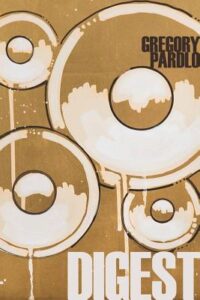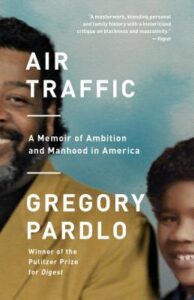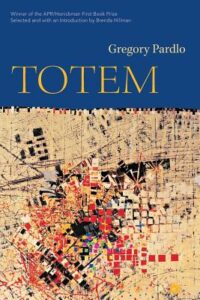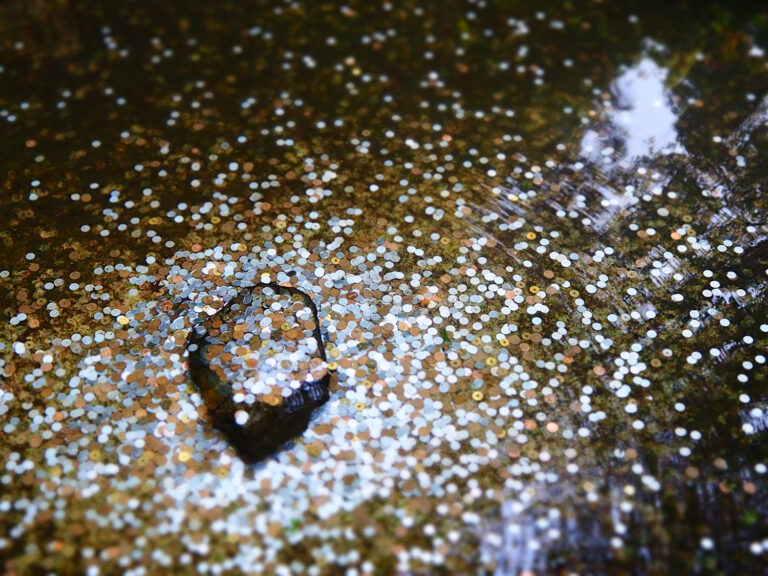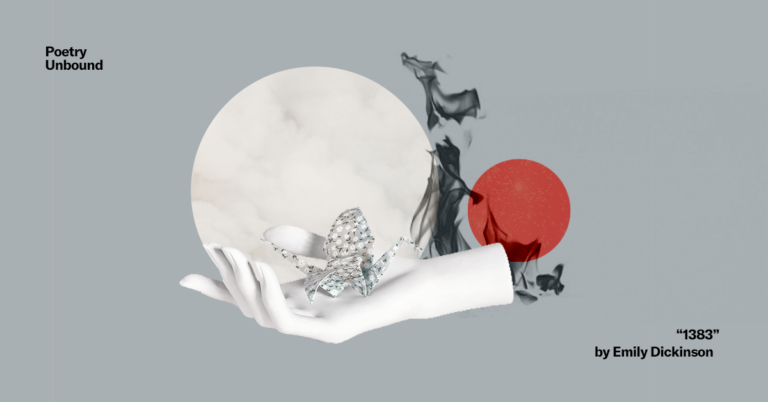Gregory Pardlo
Wishing Well
What’s a chance encounter in a city that’s never left you?
In this poem the speaker is asked a question by a stranger while standing near the water outside the Metropolitan Museum of Art in New York City. “Pardon me Old School he / says you know is this a wishing well?” He initially brushes off the stranger, but something happens: a shared coin, a well, a wish that is answered as it is made.
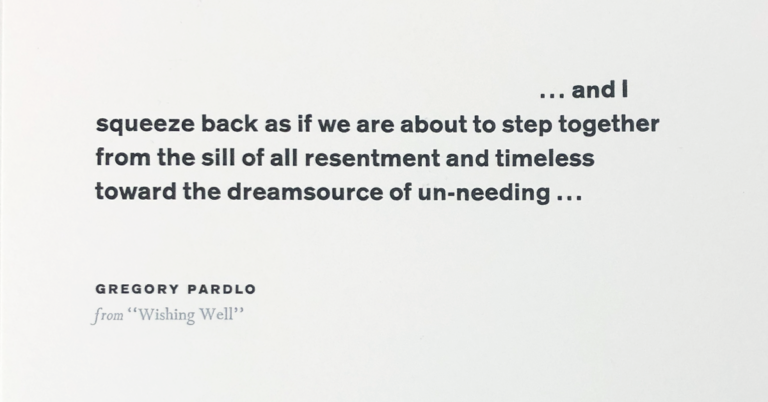
Image by Expedition Press/Expedition Press, © All Rights Reserved.
Guest
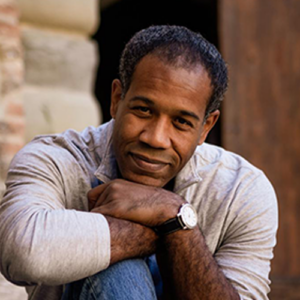
Gregory Pardlo won the 2015 Pulitzer Prize for Poetry for his collection Digest. He is poetry editor of the Virginia Quarterly Review (VQR) and Director of the MFA program at Rutgers University-Camden. His most recent book is Air Traffic, a memoir in essays.
Transcript
Pádraig Ó Tuama, host: My name is Pádraig Ó Tuama, and I write poetry and read poetry. I think sometimes people think that poetry is this lofty art, to which the ordinary, everyday experience bows down in a sense of ineptitude and inadequacy, when really, it’s the other way round. Poetry bows down to unexpected human encounters, to unexpected moments, to meetings with strangers that we have — something surprising that comes out of nowhere, that we want to hold and honor and bow down to. And the poem tries to do that with us.
[music: “Praise The Rain” by Gautam Srikishan]
“Wishing Well” by Gregory Pardlo:
“Outside the Met a man walks up sun
tweaking the brim sticker on his Starter cap
and he says pardon me Old School he
says you know is this a wishing well?
Yeah Son I say sideways over my shrug.
Throw your bread on the water.
I tighten my chest wheezy as Rockaway beach
sand with a pull of faux smoke from my e-cig
to cozy the truculence I hotbox alone
and I am at the museum because it is not a bar.
Because he appears not to have changed
them in days I eye the heel-chewed hems
of his pants and think probably he will
ask me for fifty cents any minute now wait
for it. A smoke or something. Central Park displays
the frisking transparency of autumn. Tracing
paper sky, leaves like eraser crumbs gum
the pavement. As if deciphering celestial
script I squint and purse off toward the roof
line of the museum aloof as he fists two
pennies from his pockets mumbling and then
aloud my man he says hey my man I’m going
to make a wish for you too.
I am laughing now so what you want
me to sign a waiver? He laughs along ain’t
say all that he says but you do have to
hold my hand. And close your eyes.
I make a starless night of my face before
he asks are you ready. Yeah dawg I’m ready.
Sure? Sure let’s do this his rough hand
in mine inflates like a blood pressure cuff and I
squeeze back as if we are about to step together
from the sill of all resentment and timeless
toward the dreamsource of un-needing the two
of us hurtle sharing the cosmic breast
of plenitude when I hear the coins blink against
the surface and I cough up daylight like I’ve just
been dragged ashore. See now
you’ll never walk alone he jokes and is about
to hand me back to the day he found me in
like I was a rubber duck and he says you got to let
go but I feel bottomless and I know he means
well though I don’t believe
and I feel myself shaking
my head no when he means let go his hand.”
[music: “What Did You Not Hear” by Gautam Srikishan]
Ó Tuama: I picked this poem because I love it. [laughs] There are so many reasons why this poem is so brilliant. But I just love it, because I’m so moved by it each time. The main character in it starts off by being so alone and aloof. He’s trying to smoke, and he says that he is “at the museum because it is not a bar.” You wonder, is he trying to escape from something? He’s quite a solitary character. And he’s drawn out of himself, gradually — really gradually, almost reluctantly, at the start — because this other character comes along and starts to engage him: “you know is this a wishing well?” And then he’s looking at him with suspicion, almost, to think, oh, he’s probably gonna ask me for something.
We hear that the speaker of the poem thinks that the other man might be homeless, but we don’t know that for sure. This is just the assumption of the speaker. And he, the other person, seems so at ease. He’s observing this man, and he draws him out. What’s his story? We don’t know anything about him, apart from the fact that he is who he is. He has the brilliance to say to him, I’m gonna join you with me by making a wish. And then he’s comfortable with touch, and he’s comfortable with asking for trust, as well: “close your eyes.” What a vulnerable way to be, in the middle of the city. This is an urban poem. It’s happening in front of the Metropolitan Museum of Art in New York City. I’m not sure, would I close my eyes and hold somebody’s hand, standing in a city, while they toss two pennies into a wishing well to make a wish?
But Gregory Pardlo is totally brought into this moment of hospitality, this moment of surprise, and you wonder, what’s going to happen? This poem is narrative, because you’re thinking, where is it going to go? What’s going to happen? How is it going to evolve? How will they let go of hands? Will they become great friends? How will this resolve itself?
[music: “What Did You Not Hear” by Gautam Srikishan]
Gregory Pardlo is a brilliant poet who captures the sounds of urban conversation and urban settings quite amazingly in his work.
There’s so much everyday, casual conversation happening there, and he’s not giving you too many descriptors as to how to know who’s talking where. But when you enter into the music of everyday conversation, you can just hear it going back and forth. And your voice rises and drops with the music of conversation, by following along
I remember being in New York City once, and I was sitting, doing some writing in Union Square Park. And somebody came up and sat right next to me. And they were tall and athletic, and it was a man, and he was wearing jogging shoes. He was wearing sneakers and a wedding dress. And he moved really close to me, and he looked at what I was writing. And then he said, “You’re gonna have to write much bigger than that.” [laughs] And then he walked away. And I found myself so moved by this encounter with this stranger; that he didn’t make any introduction, he just told me that I needed to write bigger.
And another time, also in Union Square, I sat and listened to the Hare Krishnas singing. I love the Hare Krishnas’ song. And this man sat next to me, and after about half an hour, he said to me, “Are you here because you need to hear this?” And I said, “I am.” And we spoke for about half an hour, two men kind of at the end of ourselves, listening to this music and trying to figure out how to pay attention to our lives. I never even got his name. I follow him on Twitter, but I never found his name. And I love what cities can do, by putting people up close to each other in that way.
[music: “Union Hall Melody” by Blue Dot Sessions]
The speaker in this poem, even though they’re in a big city and they’re encountering somebody else in this big city, they do come across like they’re alone. There is this desperate sense to be by themselves, perhaps. “I tighten my chest wheezy as Rockaway beach / sand with a pull of faux smoke on my e-cig / to cozy the truculence I hotbox alone / and I am at the museum because it is not a bar” — all of those feelings and all of the description there are happening to a person by themself. You can get the sounds and smells and experiences of a big city all around them, but you experience them as being alone.
And when you’re lonely, you can sometimes feel awkward about stepping out of loneliness, too. And when you’re lonely in a big city, you can surround yourself with people, but if somebody tries to talk to you, you can feel awkward, thinking, what’s gonna happen here? Will I have any control?
And so then what’s lovely about this other character in the poem is that the other character, in the midst of coming up at the start to say, do “you know is this a wishing well?” is the one who says, well, let’s make it a wishing well by tossing two pennies into it, and asking to hold a hand and close eyes. And the speaker in this poem feels something like a rush, it’s so beautiful. The “rough hand” of the other guy “inflates like a blood pressure cuff and I / squeeze back as if we’re about to step together / from the sill of all resentment and timeless / toward the dreamsource of un-needing” — what resentments and needs is this character holding? He seems, in this moment of encounter, to be able to step out of resentment, to step out of needing, and he is being hurtled toward “the cosmic breast / of plenitude.” Maybe there’s a sense of lack. And suddenly, these two strangers are hurtling toward plenty, hurtling toward flourishing, hurtling towards encounter, and hurtling towards this sense of not being alone anymore.
There’s ways within which this poem is giving itself coordinates to understand some of the deeper resonances of the poem. When it says, “I cough up daylight like I’ve just / been dragged ashore,” he’s been rescued from drowning. What’s he drowning in? And then the man says, “See now / you’ll never walk alone he jokes” — he seems to have totally gotten it, that this is about drowning in aloneness. And somehow, by somebody literally reaching and touching his hand and holding his hand, he’s been dragged ashore, out of aloneness into some kind of human encounter. These two don’t seem to go on to become friends, but this moment of connection seems to be something that holds them together.
[music: “Into The Earth” by Gautam Srikishan]
When the other guy says to him, “you got to let / go,” the speaker in the poem, Gregory Pardlo, says, “but I feel bottomless and I know he means / well though I don’t believe / and I feel myself shaking / my head no” — it seems like when he is hearing this instruction, “you got to let / go,” that maybe it’s an instruction like a therapist would give: Let go of your resentment; let go of your sadness; let go of whatever it is that you’re holding; let go of whatever it is that’s contributing towards your isolation. And then the other guy just says, No, I mean, let go my hand. [laughs] And he’s holding onto this person’s hand even after the game of the wishing well.
And that’s so beautiful. Something so tangible like that went so deep, because of its surprise, and I think, too, because of the charm and the gallantry of this person who comes up and makes a city well a wishing well, and invites somebody to hold his hand and close his eyes and step into the dream world of human encounter. And there’s this question as to what does it mean to be wished well from somebody else, when you feel so alone? And there is a way within which touch and surprise and plenitude here opens up a deep well of longing, of loneliness, and of need in Gregory Pardlo that is touched profoundly by the hold of this man’s hand that’s like a blood pressure cuff.
[music: “What Did You Not Hear” by Gautam Srikishan]
Ó Tuama: “Wishing Well” by Gregory Pardlo:
“Outside the Met a man walks up sun
tweaking the brim sticker on his Starter cap
and he says pardon me Old School he
says you know is this a wishing well?
Yeah Son I say sideways over my shrug.
Throw your bread on the water.
I tighten my chest wheezy as Rockaway beach
sand with a pull of faux smoke from my e-cig
to cozy the truculence I hotbox alone
and I am at the museum because it is not a bar.
Because he appears not to have changed
them in days I eye the heel-chewed hems
of his pants and think probably he will
ask me for fifty cents any minute now wait
for it. A smoke or something. Central Park displays
the frisking transparency of autumn. Tracing
paper sky, leaves like eraser crumbs gum
the pavement. As if deciphering celestial
script I squint and purse off toward the roof
line of the museum aloof as he fists two
pennies from his pockets mumbling and then
aloud my man he says hey my man I’m going
to make a wish for you too.
I am laughing now so what you want
me to sign a waiver? He laughs along ain’t
say all that he says but you do have to
hold my hand. And close your eyes.
I make a starless night of my face before
he asks are you ready. Yeah dawg I’m ready.
Sure? Sure let’s do this his rough hand
in mine inflates like a blood pressure cuff and I
squeeze back as if we are about to step together
from the sill of all resentment and timeless
toward the dreamsource of un-needing the two
of us hurtle sharing the cosmic breast
of plenitude when I hear the coins blink against
the surface and I cough up daylight like I’ve just
been dragged ashore. See now
you’ll never walk alone he jokes and is about
to hand me back to the day he found me in
like I was a rubber duck and he says you got to let
go but I feel bottomless and I know he means
well though I don’t believe
and I feel myself shaking
my head no when he means let go his hand.”
[music: “Praise The Rain” by Gautam Srikishan]
Lily Percy: “Wishing Well” comes from Gregory Pardlo’s book Digest. Thank you to the Permissions Company, on behalf of Four Way Books, who gave us permission to use Gregory’s poem. Read it on our website, at onbeing.org.
Poetry Unbound is Chris Heagle, Erin Colasacco, Serri Graslie, Eddie Gonzalez, Lilian Vo, Christiane Wartell, Karen Navarre, Karyn Towey, Sue Ariza, and me, Lily Percy. Our music is composed and provided by Gautam Srikishan and Blue Dot Sessions. This podcast is produced by On Being Studios, which is located on Dakota land. We also produce other podcasts you might enjoy, like On Being with Krista Tippett, Becoming Wise, and This Movie Changed Me — find those wherever you like to listen or visit us at onbeing.org to find out more.
Books & Music
Recommended Reading
The On Being Project is an affiliate partner of Bookshop.org and Amazon.com. Any earnings we receive through these affiliate partnerships go into directly supporting The On Being Project.





